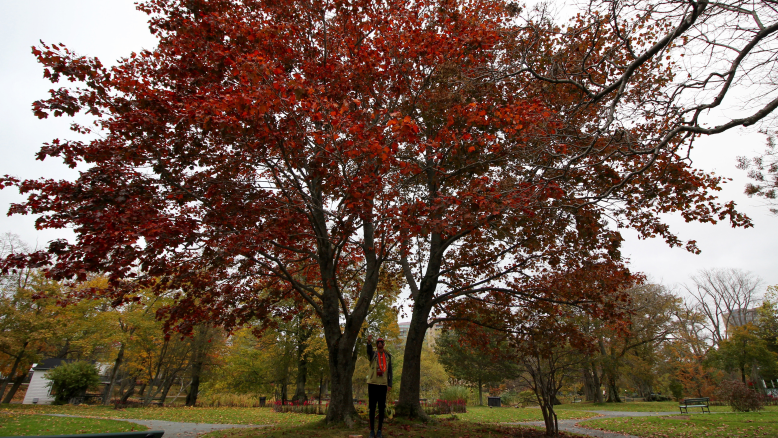A warrior’s journey
The ultramarathon of Brad ‘Caribou Legs’ Firth
Cross-Canada run for awareness on missing and murdered indigenous women nears completion
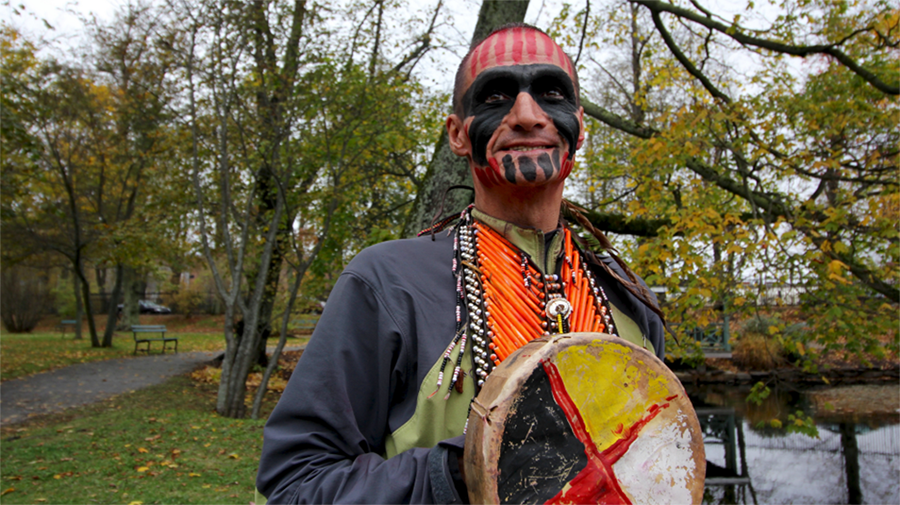
caption
Brad 'Caribou Legs' Firth is an ultramarathon runner and member of the Gwich'in First Nations.[idealimageslider id=”18249″]
I first meet Brad Firth at the Museum of Natural History in Halifax on Oct. 30. He strides humbly into the room, and shakes hands with everyone gathered in the small auditorium. He is soft-spoken, kind.
“Does my makeup look OK?” he asks me. It does. Red paint is streaked across his forehead and cheeks. His eyes are sunken into thick black stripes. He wears the paint of a warrior.
He is introduced to the 40-person crowd as ‘Caribou Legs’ — an ultramarathon runner crossing Canada to raise awareness about the missing and murdered indigenous women across the nation.
He begins to speak, and he is animated. He paces the small, empty auditorium floor, moving his hands and using his water bottle as a prop. He tells his story with humble, heartfelt honesty.
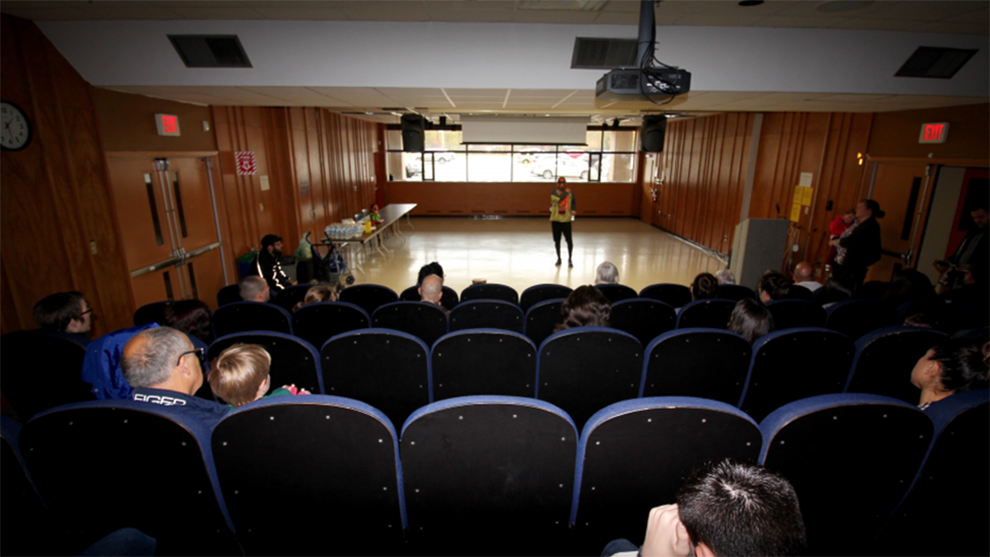
caption
Firth speaks to a small crowd at Halifax’s Museum of Natural History.After beating a 20-year addiction to crack cocaine in Vancouver’s Downtown Eastside, Firth began training as a traditional message carrier. He began to run long distances in preparation for a Cross-Canada run. Running helped him heal.
It was during this training – running along the side of a highway – when Firth was clipped by a semi-truck in September 2012. His left elbow shattered, his finger was cut nearly clean off and he suffered a deep gouge in the sole of his foot.
It took him months to recover. He refused morphine and other painkillers. He relearned how to use his arm and waited for his foot to heal.
Then in the summer of 2015 he received another blow. Firth was running in Ontario when he got a call that his sister Irene, a victim of domestic abuse, had died.
Firth tells the crowd in the museum that his first instinct was rage and revenge. But he decided to channel his rage into running, and chose to run across Canada in her honour. A close friend challenged him to run for not only her, but all of the women who were victims of abuse, who were murdered and who went missing.
So for them, he ran.
On Mother’s Day (May 8) on Vancouver Island Firth began his run. He has now reached the Nova Scotia shorelines and by Nov. 20, he will have completed his journey in St. John, N.B.
“As long as I get eight hours of sleep, I can run,” he says. He runs nearly 75 kilometres a day.
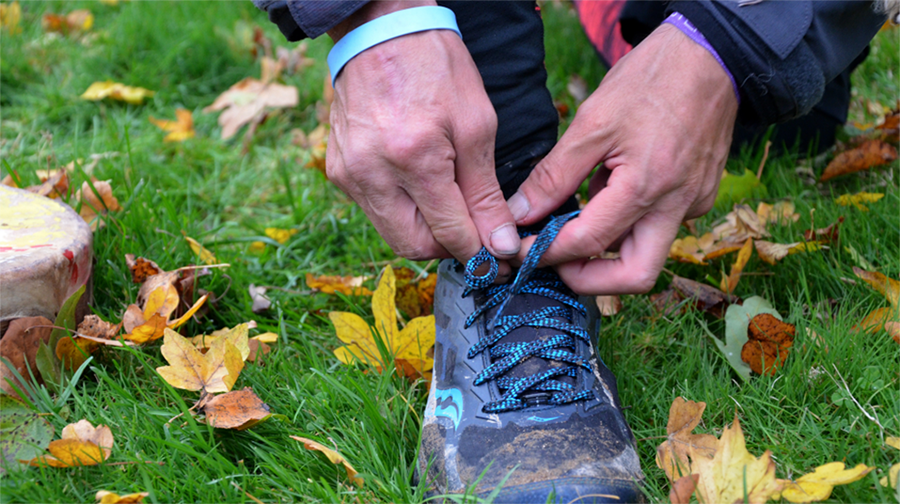
caption
Firth has gone through 15 pairs of shoes.Along his journey, Firth has slept in abandoned trucks, in unlocked Parks Canada cars and in sheds on the sides of the road. He tries to run from motel to motel, but any shelter will do. He has been pelted by hail, stopped by police and racked up over $500 in fines (particularly in Alberta). He has been spat on, handcuffed, and sworn at.
He runs as a warrior, he tells us. He runs as a brother. He stops running to hug and speak to anyone who recognizes him on his journey. He accepts only the most practical of gifts. At stops along the way he speaks to crowds; some small like ours, some very large.
Firth dedicates a few moments to addressing the men in the room. He challenges them to access their emotions. He believes learning to access and cope with themselves and their emotions is part of the key to ending the cycle of violence.
“Are you a warrior or a gangster?” he asks them.
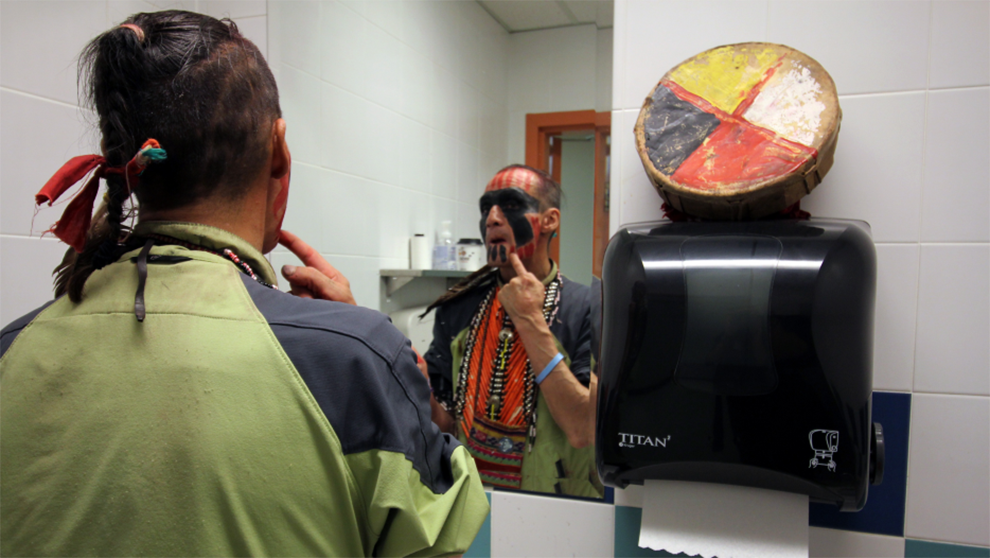
caption
Firth applies his red and black war paint in the museum bathroom.Firth aims to challenge men to be warriors. It’s what the paint on his face means, he tells me. We are in the bathroom, and he’s just finished his makeup. He explains that warriors wear makeup, and that the red streaks represent the blood of the women he fights for.
After he speaks, the organizers present him with a cake. It looks like him. He laughs, takes pictures with the crowd and cuts and serves the cake to everyone in the room. As I watch him interact with the small crowd, I am touched by his gentleness, his energy, and his kindness.
Before we part ways, he hugs me. After this run is complete, he tells me, he’ll run again.
“There are 3,100 reserves in Canada,” he says. “I want to hit every one of them.”
